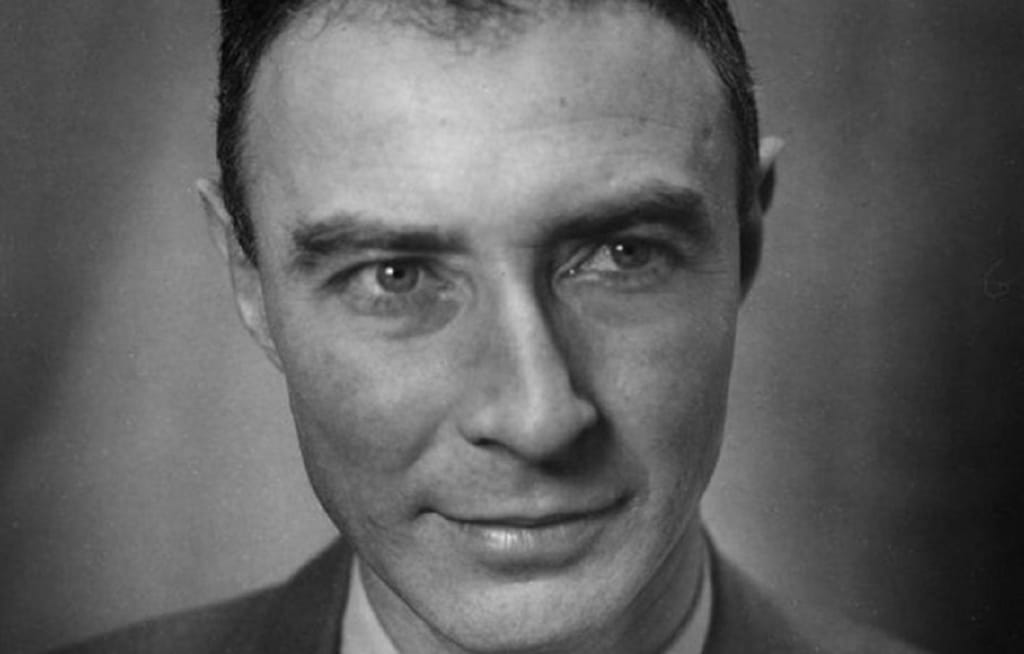J. Robert Oppenheimer: The Enigmatic Genius Behind the Atomic Bomb
Oppenheimer might be the most important physicist to have ever lived

He never won a Nobel Prize, but he changed the world more than most Nobel Prize winners. Under his leadership, the best physicists of the 20th century built the atomic bomb, forever changing the course of history.
Introduction: The Troubled Genius
J. Robert Oppenheimer, a brilliant physicist, was known for his extraordinary intellect and charismatic leadership. His journey to becoming the chief architect of the atomic bomb was not without its challenges. From early struggles in the laboratory to being accused of treason, Oppenheimer's life was marked by both triumph and controversy. In this article, we will delve into the life of this enigmatic genius, explore the development of the atomic bomb, and the implications it had on the world.
The Early Years: A Troubled Path
Oppenheimer's brilliance in physics was evident from an early age. However, during his undergraduate years at Cambridge, he found himself disillusioned with experimental work and sought solace in the emerging field of quantum mechanics. Despite being surrounded by great physicists, Oppenheimer felt unhappy and struggled with feelings of inadequacy in the lab. His unhappiness escalated to the point where he attempted to poison his physics tutor, but the incident was never pursued due to his family's influence.
Göttingen and Quantum Mechanics: Thriving Under Max Born
A turning point came when Oppenheimer traveled to the University of Göttingen. Under the mentorship of Max Born, he thrived in the world of theoretical physics. Oppenheimer's mental health improved, and he found himself in the company of like-minded individuals who shared his passion for physics. It was during this time that he began making significant contributions to quantum mechanics.
The Emergence of Fission: Unlocking the Power of the Atom
In 1939, the world witnessed a groundbreaking discovery by Otto Hahn and Fritz Strassmann: the process of nuclear fission. This revelation led to the realization that enormous energy could be harnessed from radioactive atoms. The idea of a nuclear chain reaction was born, and the race to develop an atomic bomb began. Einstein himself signed a letter urging President Roosevelt to take this matter seriously.
The Manhattan Project: Oppenheimer's Role as the Science Director
In 1942, Oppenheimer was appointed as the science director of the Manhattan Project, a highly secretive mission aimed at building the first atomic bomb. Despite initial doubts about his ability to lead, Oppenheimer proved to be a remarkable coordinator and advisor. The project's success would eventually lead to the deployment of atomic bombs on Hiroshima and Nagasaki, forever altering the course of history.
The Devastating Impact: Hiroshima and Nagasaki
On August 6th and 9th, 1945, the world witnessed the horrifying power of the atomic bomb as Little Boy and Fat Man were dropped on Hiroshima and Nagasaki, respectively. The death toll reached hundreds of thousands, and the aftermath of the bombings left a lasting impact on the world. Oppenheimer's feelings towards the bombings were complex; he acknowledged the terrible consequences but also believed that it ended the war sooner, avoiding a potentially bloodier campaign.
The Hydrogen Bomb: Ethical Concerns and Proliferation
Post-World War II, the arms race intensified, leading to the development of the hydrogen bomb, or "The Super." Oppenheimer expressed ethical concerns over its creation, fearing that it would ignite an unstoppable arms race. However, his warnings went unheeded, and the world witnessed the testing of the first hydrogen bomb in 1952. The subsequent arms race between the United States and the Soviet Union escalated tensions during the Cold War.
The Downfall and Controversy: Oppenheimer's Security Clearance Revoked
Despite his invaluable contributions, Oppenheimer faced scrutiny over his past ties to the Communist Party, which led to his security clearance being suspended. The subsequent security hearings were highly publicized and took a toll on Oppenheimer's reputation. His opposition to the development of the hydrogen bomb and calls for arms control were viewed with suspicion. The controversy surrounding his loyalty haunted him until his death in 1967.
Conclusion: The Legacy of J. Robert Oppenheimer
J. Robert Oppenheimer's life was a complex tapestry of brilliance, leadership, and controversy. As the chief architect of the atomic bomb, he played an instrumental role in shaping the course of history. However, the devastating impact of the bombings on Hiroshima and Nagasaki also cast a shadow on his legacy. Despite his controversies, Oppenheimer's contributions to science and his influence on the field of physics remain undeniable. His life stands as a poignant reminder of the power and responsibility that comes with scientific discovery.
About the Creator
Daniel Fuentes Hermosa
"Awakening minds to resist NWO's grip. Self-care as my rebellion - mind, body, soul united. Unbreakable spirit in a chaotic world. #Resilience #TruthSeeker"






Comments
There are no comments for this story
Be the first to respond and start the conversation.